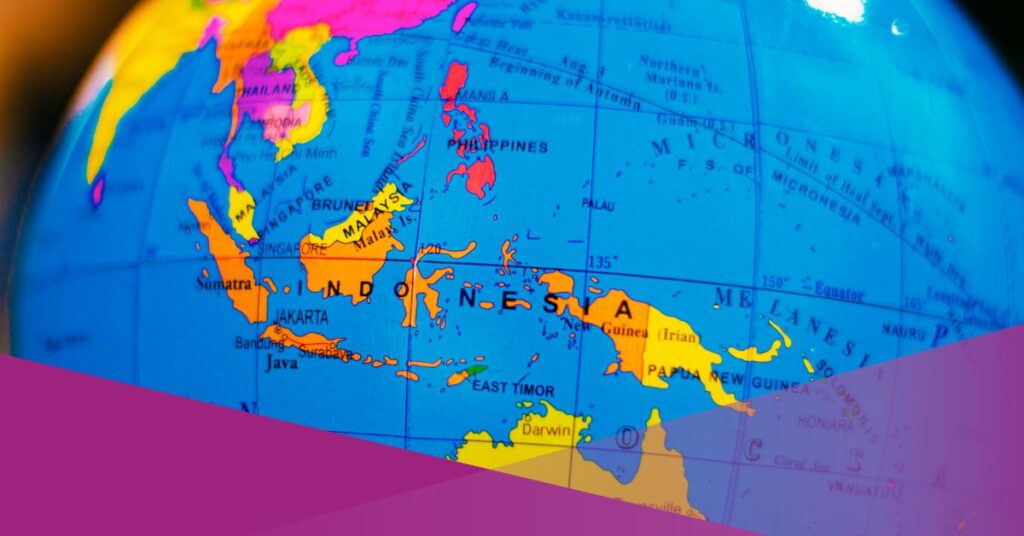Indonesia is steadily emerging as one of the world’s most compelling investment destinations. In the first quarter of 2025, the Indonesian Cabinet Secretary reported the total investment realisation reached IDR 465.2 trillion, up 15.9 % year-on-year, signalling renewed investor confidence in the country’s future.
The outlook for 2026 is equally promising, with projections showing investment could reach IDR 2,175 trillion.
Yet with opportunity comes complexity. For foreign businesses looking to open a business in Indonesia, the legal, regulatory, and operational terrain can be challenging.
This guide provides you with five key highlights so your business launch is not just possible, but credible, lawful, and sustainable.
Understand Types of Business in Indonesia for Foreign Investors
PT PMA: Full Foreign Ownership
The PT PMA (Foreign-Owned Limited Liability Company) allows direct foreign investment and full operational control. It’s the ideal structure for companies planning long-term operations in Indonesia.
Requirements include:
- Two shareholders (local or foreign)
- A director and commissioner
- Minimum paid-up capital of IDR 2.5 billion
The PT PMA must register via the OSS-RBA system, report quarterly investment activity (LKPM), and comply with sector-specific rules. It offers the freedom to trade, manufacture, and provide services and making it the preferred structure for serious investors.
Representative Office: Ideal to Test Your Idea Safely
A Representative Office (KPPA or KP3A) suits those wanting to explore the market before committing large capital. It allows brand promotion, research, and networking, but cannot generate revenue or sign contracts.
You’ll need:
- A parent company appointment letter
- A local office lease
- A registered Chief Representative
This structure helps test market viability without setting up a full legal entity.
5 Important Things You Must Know Before Starting A Business in Indonesia

1. Stay Permit and Visa Compliance for Foreign Investors
If you intend to bring foreign executives or investors into your operation, securing the correct stay permit is central. A foreign stay permit is not just about convenience; it’s an essential prerequisite for legally working, investing, or managing a company in Indonesia. Without it, you risk delays, infractions or even the invalidation of business permits.
For investors and foreign new business owners, two key visas stand out:
Investor ITAS (Izin Tinggal Terbatas)
A limited-stay permit allowing you to live in Indonesia and manage your business at the director/shareholder level.
Investor KITAP (Kartu Izin Tinggal Tetap)
A longer-term permit (5–10 years) that allows conversion to permanent residence once certain conditions are met — typically at least four years of holding shares in a PT PMA and prior possession of an ITAS.
Key compliance areas you must heed include:
Investment and Paid-Up Capital: For a PT PMA, the total investment must be at least IDR 10 billion (≈ USD 700,000) and paid-up capital minimum IDR 2.5 billion for many sectors in 2025.
Company Operations and Policies: Your company must operate in line with your business plan, meet company law obligations and maintain transparency.
Permit Extension: Stay permits must be renewed and tied to corporate compliance. Failure to keep your business licence legitimate can jeopardise your visa status.
2. Initial Investment & Compliance Before Setting Up a Business in Indonesia
Starting a business without properly understanding your capital requirements is risky. Depending on your business structure (PT local, PT PMA, Representative Office), you’ll need to register your business and align with investment thresholds and compliance rules.
For a 100 % foreign-owned PT PMA, recent regulations require:
- A minimum total investment value of IDR 10 billion (excluding land and buildings) per business line (KBLI 5-digit).
- A minimum paid-up capital of IDR 2.5 billion as of 2025, reflecting recent reforms.
Ensuring your capital meets both the legal amount and the way it’s recorded is essential. These funds must often stay in your company bank account for 12 months unless used for legitimate business expenditure. A misstep here can trigger regulatory reviews and unnecessary costs.
3. Business Registration & Company Setup Process
To turn your business idea into a legal entity, you’ll also need a clear business plan, choose a name, decide on a business type (product or service), and select a legal structure: PT (local), PT PMA (foreign-owned), or perhaps a Representative Office if you’re exploring the market.
Registration involves:
- Choosing your Business Name
- Setting up your legal entity (notary deed, Articles of Association)
- Registering with the OSS (Online Single Submission) system
- Obtaining your Business Identification Number (NIB) and relevant licences
- Choosing your business ideal model and mapping your market research, especially if you’re entering as a new small business
- Preparing core legal, administrative, and operational instruments, such as legal officers, accountants, and HR management, whether in-house or partnering with third party agencies, to ensure smooth performance without major internal issues.
Being meticulous at this stage avoids delays and ensures your start up aligns with Indonesian regulations from day one.
4. Licenses and Company Legal Administrative
Whether you’re a start-up or an expanding business, obtaining the correct business licences is non-negotiable. You’ll need to identify the licences your business needs, from trading permits, manufacturing approvals, to service licences, and ensure they align with your business activities.
This means:
- Clarifying which licences apply to your business needs
- Ensuring your application matches your company’s legal structure and sector
- Monitoring renewals and administrative requirements
- Being audit-ready in case authorities request evidence of compliance
Failing to maintain these administrative systems can lead to business interruptions or regulatory sanctions.
5. Maintenance and Sustainability
Once your company is established, the job isn’t done; you must maintain the security and legality of your company. That means ongoing compliance, sustainability planning, and governance.
Key areas include:
- Annual reporting and tax filings
- Ensuring paid-up capital remains compliant
- Monitoring regulatory changes (for example, new incentives or shifting rules)
- Periodic review of your business operations, licence validity, and corporate governance
Sustaining your business in Indonesia means more than launching; it means navigating the regulatory environment continuously.
Are you ready to start a business in Indonesia?
Starting a business in Indonesia can be one of the most rewarding decisions an entrepreneur can make. If you’re thinking about starting a small business, launching an online business, or planning to take your business to the next level through expansion into Indonesia’s largest economy, understanding the country’s legal and regulatory landscape is crucial.
Choosing the right kind of business entity to register through the Online Single Submission (OSS) system, securing the necessary business licences, and ensuring compliance with tax and employment laws. It can sound daunting, but with the right partner, it doesn’t have to be.
Our official partner LMI Consultancy helps you navigate every stage, from the initial preparation for company incorporation to obtaining business grants, permits, and operational approvals.
As one of Indonesia’s most trusted advisors for expatriates, entrepreneurs, and investors, LMI Consultancy focuses on making it easier for you to set up your company correctly, legally, and efficiently, so you can focus on building, innovating, and growing.


































